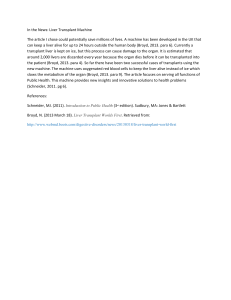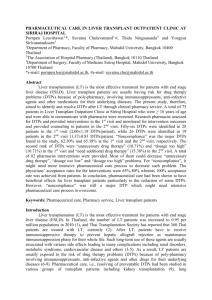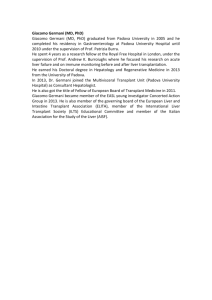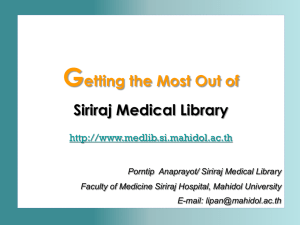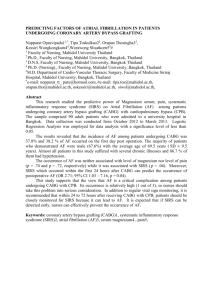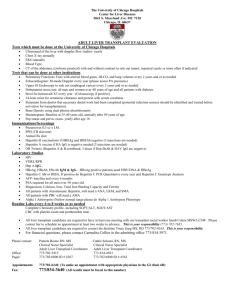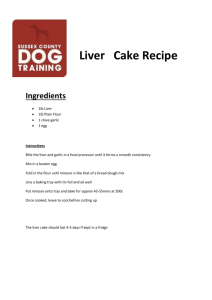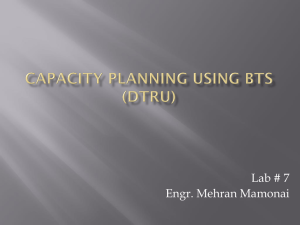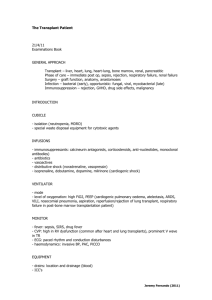PHARMACEUTICAL CARE IN LIVER TRANSPLANT OUTPATIENT
advertisement
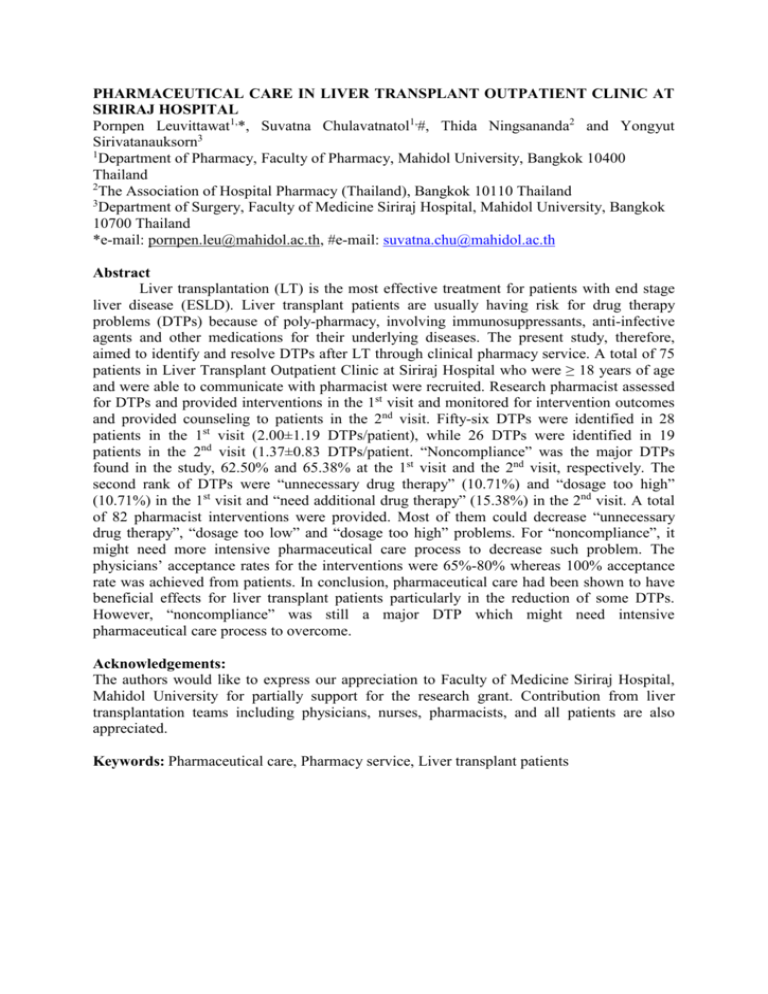
PHARMACEUTICAL CARE IN LIVER TRANSPLANT OUTPATIENT CLINIC AT SIRIRAJ HOSPITAL Pornpen Leuvittawat1,*, Suvatna Chulavatnatol1,#, Thida Ningsananda2 and Yongyut Sirivatanauksorn3 1 Department of Pharmacy, Faculty of Pharmacy, Mahidol University, Bangkok 10400 Thailand 2 The Association of Hospital Pharmacy (Thailand), Bangkok 10110 Thailand 3 Department of Surgery, Faculty of Medicine Siriraj Hospital, Mahidol University, Bangkok 10700 Thailand *e-mail: pornpen.leu@mahidol.ac.th, #e-mail: suvatna.chu@mahidol.ac.th Abstract Liver transplantation (LT) is the most effective treatment for patients with end stage liver disease (ESLD). Liver transplant patients are usually having risk for drug therapy problems (DTPs) because of poly-pharmacy, involving immunosuppressants, anti-infective agents and other medications for their underlying diseases. The present study, therefore, aimed to identify and resolve DTPs after LT through clinical pharmacy service. A total of 75 patients in Liver Transplant Outpatient Clinic at Siriraj Hospital who were ≥ 18 years of age and were able to communicate with pharmacist were recruited. Research pharmacist assessed for DTPs and provided interventions in the 1st visit and monitored for intervention outcomes and provided counseling to patients in the 2nd visit. Fifty-six DTPs were identified in 28 patients in the 1st visit (2.00±1.19 DTPs/patient), while 26 DTPs were identified in 19 patients in the 2nd visit (1.37±0.83 DTPs/patient. “Noncompliance” was the major DTPs found in the study, 62.50% and 65.38% at the 1st visit and the 2nd visit, respectively. The second rank of DTPs were “unnecessary drug therapy” (10.71%) and “dosage too high” (10.71%) in the 1st visit and “need additional drug therapy” (15.38%) in the 2nd visit. A total of 82 pharmacist interventions were provided. Most of them could decrease “unnecessary drug therapy”, “dosage too low” and “dosage too high” problems. For “noncompliance”, it might need more intensive pharmaceutical care process to decrease such problem. The physicians’ acceptance rates for the interventions were 65%-80% whereas 100% acceptance rate was achieved from patients. In conclusion, pharmaceutical care had been shown to have beneficial effects for liver transplant patients particularly in the reduction of some DTPs. However, “noncompliance” was still a major DTP which might need intensive pharmaceutical care process to overcome. Acknowledgements: The authors would like to express our appreciation to Faculty of Medicine Siriraj Hospital, Mahidol University for partially support for the research grant. Contribution from liver transplantation teams including physicians, nurses, pharmacists, and all patients are also appreciated. Keywords: Pharmaceutical care, Pharmacy service, Liver transplant patients
